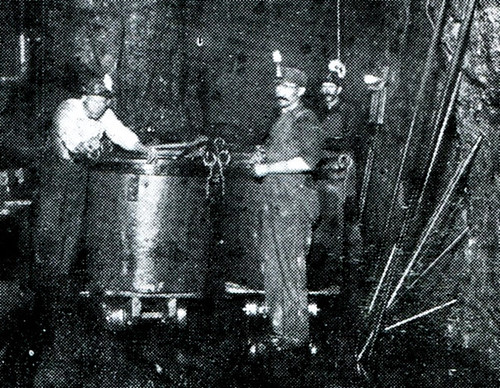In Joplin, miners lined up for their weekly wages on Saturday. At the turn of the century, one paper reported that many of the leading mining companies were reluctant to pay workers on Saturday, but “the average miner will quit his job unless he is paid on Saturday and miners are scarce in this district.”
Paychecks were the primary method of payment. The ground boss kept track of his men’s hours and then the mine superintendent approved the final time statement. The statement was then delivered to the bookkeeper who then wrote out the checks. The mine superintendent then handed out the checks. Most mining companies reportedly employed fifteen to thirty men and their checks averaged $10 to $13 with each company shelling out anywhere between $300 to $700 for labor. As soon as they were paid, most miners went to the nearest bank to cash their checks, so Joplin bankers had to be sure to have enough money on hand on Saturdays, with many miners preferring to be paid in silver. Miners who had cashed their check were said to have “busted up.”
Banks were not the only ones who cashed checks. The saloon keepers of Chitwood and Smelter Hill may have cashed more checks than the banks. The paper observed, “The saloon man is accommodating; he always is.” One bank teller stated, “It used to be that we were obliged to keep open until 9 o’clock every Saturday night to transact the run of business, but now we finish and close by 8 o’clock. We do not cash near as many checks over the bank counter as a few years ago. The saloons and business houses are doing that part.”
The Joplin chapter of the Women’s Christian Temperance Union (WCTU) tried to convince local mine superintendents to refrain from “settling their men in saloons” but failed to sway a majority, thus leaving the saloons an inviting place for miners to cash their checks and have a drink. Thus the streets of Joplin remained a lively, bustling place to be on a hot Saturday night.
Source: Joplin newspaper

